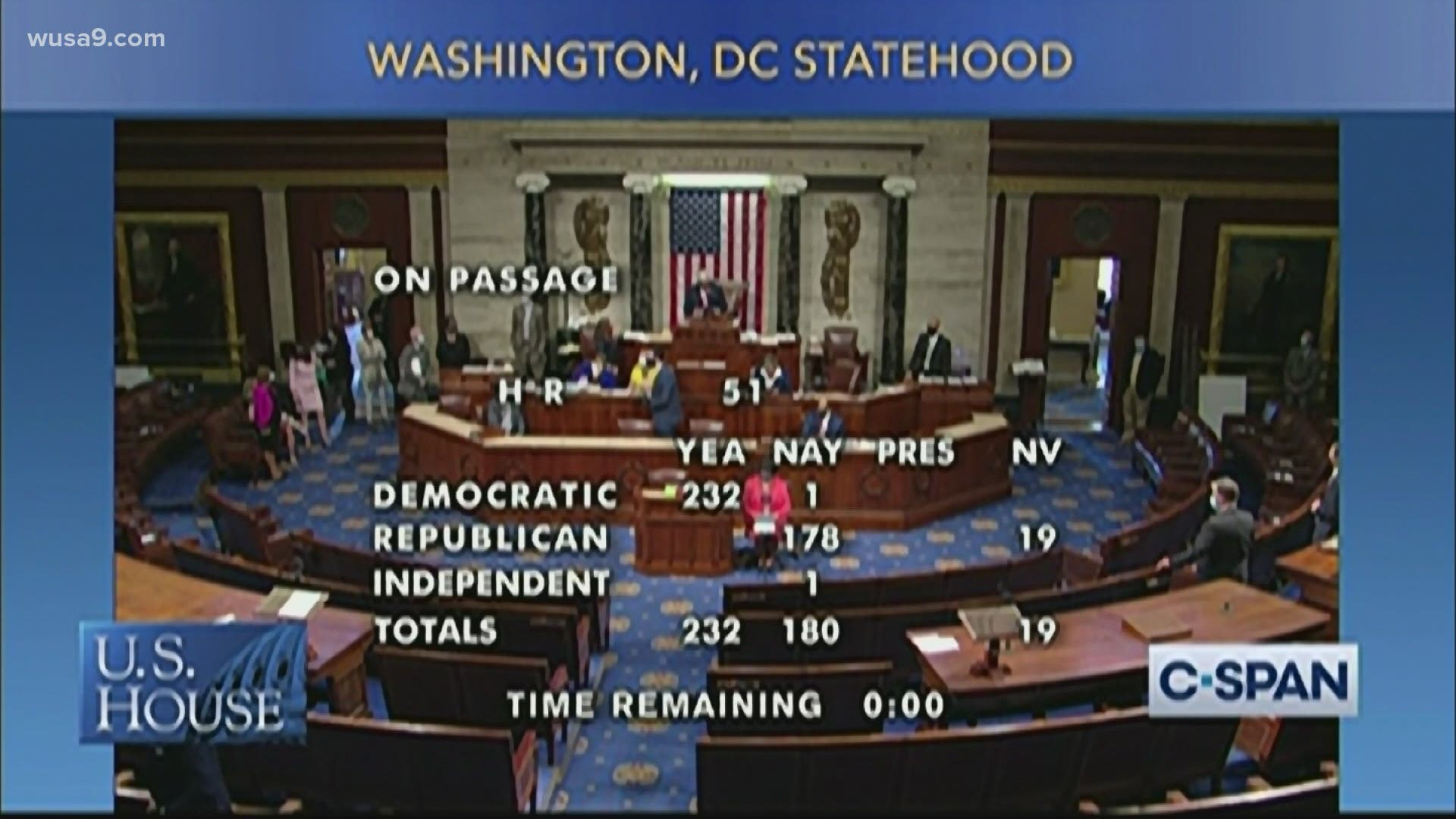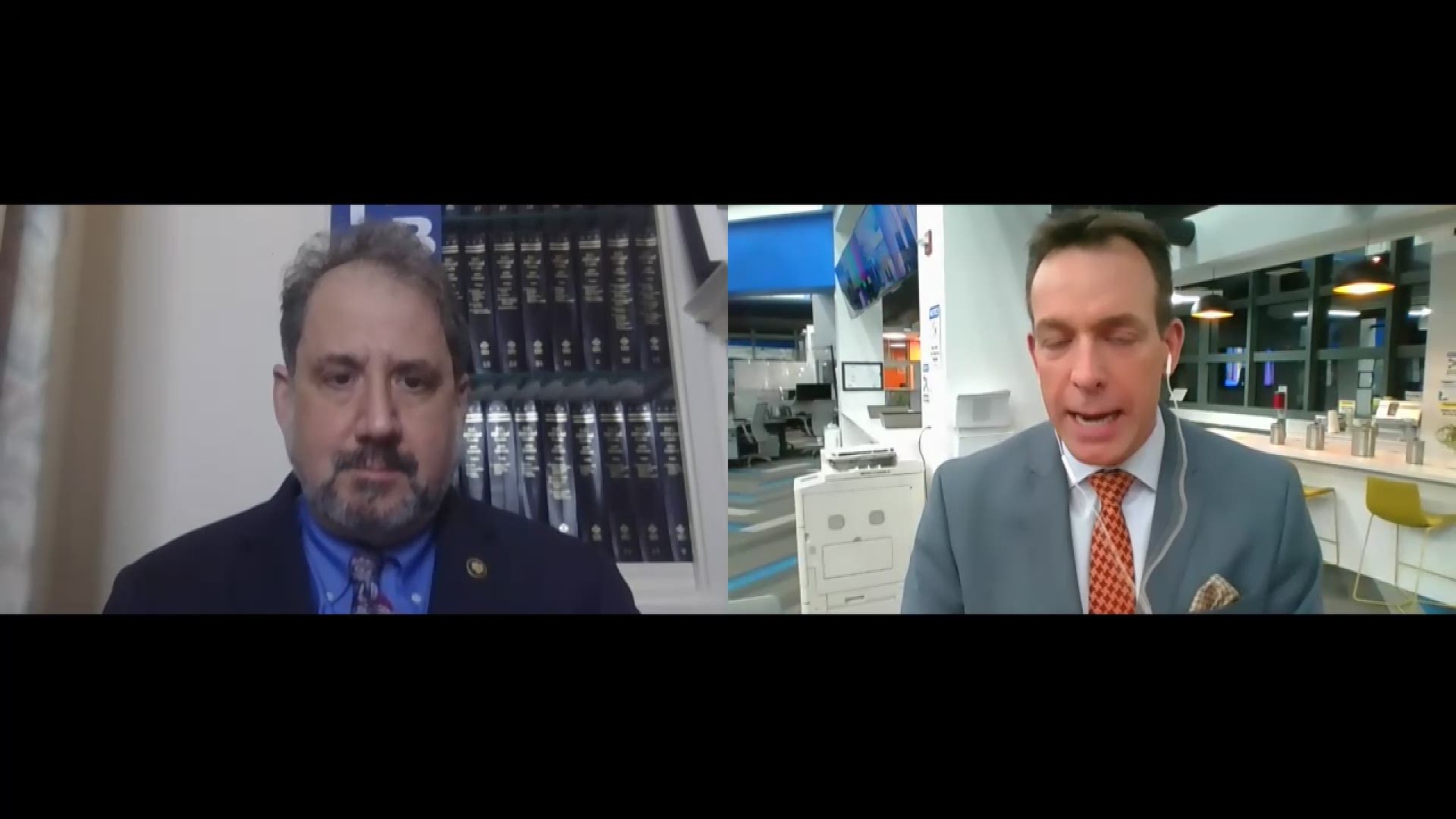WASHINGTON — It's been 247 years since American colonists famously dumped chests of tea into Massachusetts' Boston Harbor. Venting their anger towards the British Parliament, the colonists boldly declared they would not stand for "taxation without representation."
The scene, famously known as the "Boston Tea Party" came to symbolize the outrage among Americans that they expected a voice in the government decisions that affected their lives.
Since 1801, residents in the federal enclave carved from territory ceded by Virginia and Maryland have similarly had no leader with a vote to represent their interests in the government seated in the heart of their city.
Proponents of D.C. statehood came closer than ever before in 2020. In February, HR 51 passed on party lines out of the House Oversight Committee. And in June, House Majority Leader Steny Hoyer (D-MD) brought the gavel down after approval of the historic vote on the House floor which sought to establish Washington, Douglass Commonwealth as the 51st state of the United States.
But that's where it stopped. A majority Republican Senate and a Republican in the White House spelled doom for the 705,000 D.C. residents who only in 1964 were granted the right to vote for a U.S. President.
This time is different. The 117th Congress could part the clouds and reveal sunshine for the District's disenfranchised residents. But there's one thing those residents need to have happen first.
They need Georgia to elect two Democratic Senators during the state's runoff election.
"If for some reason the Republicans hold those seats, the reality for D.C. Statehood is we're looking at at least two (more) years," D.C.'s Shadow Senator Paul Strauss said. "If Democrats take those seats, it's still not a lock that they can move on something like D.C. Statehood."
It takes 60 votes in the Senate to allow a measure under consideration to be voted on by the full Senate.
If the two Democrats prevail in Georgia, the U.S. Senate would be locked in a 50-50 tie between Republicans and Democrats. Vice President Kamala Harris would hold the tie-breaking vote.
In that situation, the Senate could hold committee hearings on D.C. statehood. Senators could debate the measure on the floor if the statehood bill escaped committee. But, 10 Republicans would have to cross party lines and approve closure of debate before the bill could be voted on by all the senators. That would be highly unlikely to happen.
One of those two Georgia races has been called, with Democrat Raphael Warnock defeating Republican incumbent Kelly Loeffler, becoming the state's first Black senator in history.
The focus now shifts to the second race between David Perdue and Democrat Jon Ossoff. Early Wednesday, Ossoff claimed victory, but the candidates were locked in a tight race and it was too early to call a winner.
With a 50-50 tie, Democrats could vote to end that 60 vote threshold known as the "filibuster rule." At least one, Joe Manchin of West Virginia, has gone on record to declare he is firmly against such a change to Senate rules.
"Hopefully, if the people of Georgia speak loudly and clearly, the voices of the people of the District of Columbia will someday soon be heard on the same par and equality of those of the other 50 states," Strauss said.
House Speaker Nancy Pelosi issued a statement vowing to again bring the measure on D.C. statehood to a full vote in the House of Representatives this year.
D.C.'s non-voting delegate in the House, Eleanor Holmes Norton gained 202 original co-sponsors to the Washington, D.C. Admission Act introduced in the new Congress.
Read the bill HERE.


